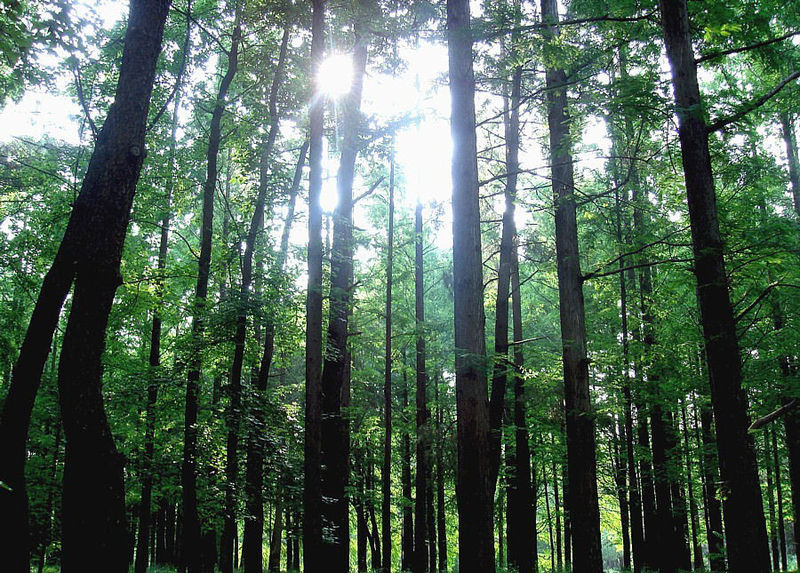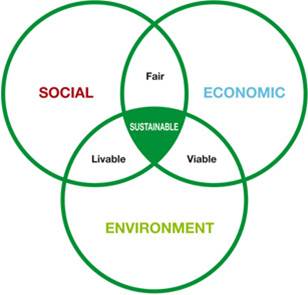
Since the beginning of time, humankind has attempted to control nature to suit the needs of a single species; ours. This decision has led us down a slippery slope of over-consumption habits, and in the past has been attributed to the demise of ancient civilizations and empires. In order to secure a sustainable future for the planet, we need to make swift changes in our lifestyles—now. Fortunately, Monmouth University is setting a great example for sustainable building and energy use (did you know Monmouth gets 10 percent of its utility supplied electricity from certified green sources?) Better yet, some of the students are on board with the cause, too.
It is difficult for most people to imagine; the idea that the world we know today, the global society that we have created, could so easily fall. Think about great civilizations throughout history; certainly they, too, thought their empires were indestructible. Their technological and agricultural advances were far ahead of their time. However, even these great societies collapsed, and historians are near certain that their over exploitation of the environmental played a part in their demise. That is why it is more important now than ever to make changes to the way we live.
Adam Bachmann, treasurer of Monmouth’s Outdoors Club, is hopeful that his generation will take the lead. “I think we will [bring about positive environmental changes] because there’s a lot more awareness about conserving energy and resources.”

Now, let’s look at the case the Easter Island inhabitants, whose over-exploitation of limited resources proved disastrous. The Islanders, who are best known for their giant-head stone statues called maoi, chopped down nearly every tree by the year 1600. This caused a train reaction that destroyed the once innovative and sophisticated society.
Like the islanders, most of the us are consuming resources faster than they can renew themselves. Fortunately, Monmouth’s Sustainability Advisory Council is working to minimize the University’s carbon footprint and is a pioneer among greening universities.
“Monmouth University has been at the forefront of colleges and university’s committed to improving the environment through good
stewardship,” said Patricia Swannack, a resource of the Sustainability Advisory Council. Indeed, the list of Monmouth’s greening efforts is quite impressive. For starters, the University uses 100 percent recycled paper in all the restrooms, and cleans with eco-friendly products; and has purchased a few hybrid police vehicles and electric and solar powered golf carts.
“At the present time we are eagerly awaiting delivery of solar panels which will increase the University’s solar output from 452 kilowatts to over 1.1 megawatts,” said Swannack.

The council is also awaiting results from an applied grant to obtain two charging stations for electricla vehicles, and is introducing vending machines that control energy use via EnergyMiser Sensors (similar to those used at Tufts University), and can save hundreds of dollars each year, not to mention the carbon impact.
While Monmouth University is certainly a forerunner in the green movement, the role of the individual cannot be overlooked. Monmouth’s simple changes, like using recycled paper, eco-friendly lightbulbs, and green cleaning products, are things anyone can do at home or in their dorm. We examine the effects on the Earth’s resources from a societal perspective, but change starts local and small.
“It’s up to each individual to do their own part,” said Bachmann, “no one is going to do it for you, not the government, not anybody, you have to do your own part to help out.” Bachmann uses online banking to save paper, turns off all lights when not in use, and prefers to open windows rather than use air conditioning.
For more ideas on how to go green without much effort or money, browse some of these great sites.
- Earth Easy: Solutions for Sustainable Living
- Natural Resource Defense Council: Smarter Living
- TreeHugger: How and Why to go Green (Don’t worry, you don’t have to be a treehugger to visit the site, nor does visiting automatically make you one)
- WholeLiving: Green Living




